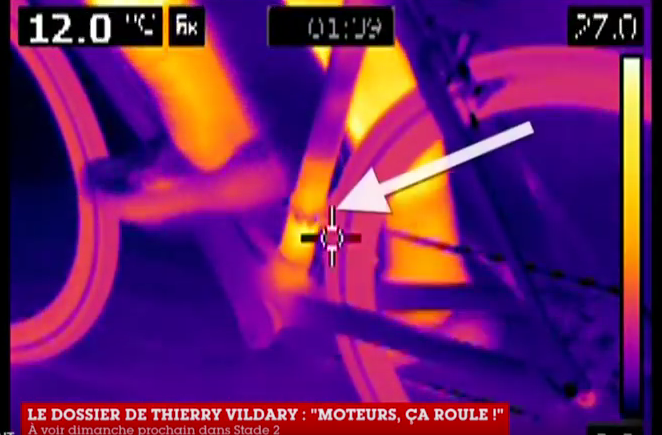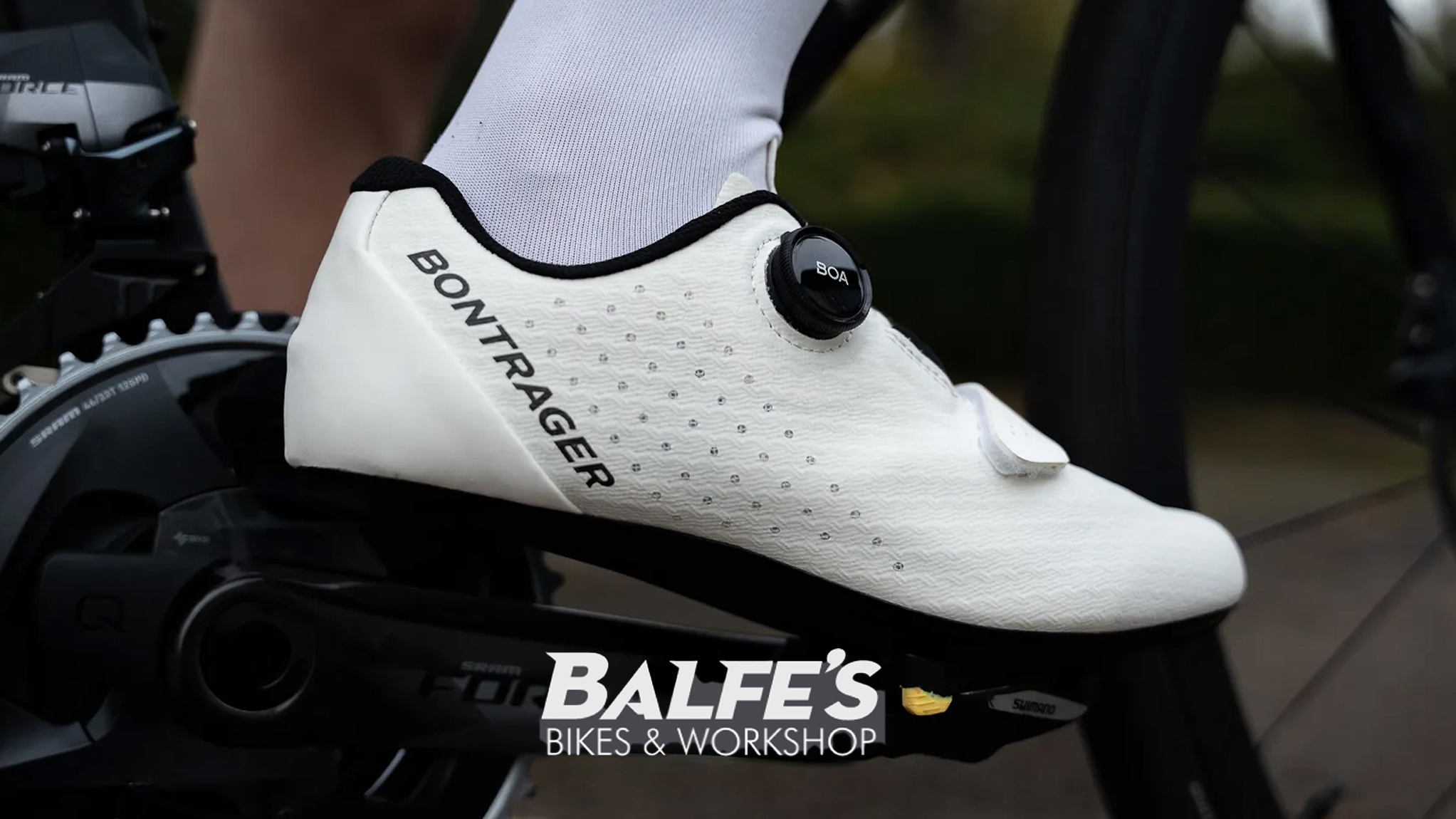Riders used motors in Strade Bianche and Coppi e Bartali, alleges report
An investigation by French television's Stade 2 and Italian newspaper Corriere della Sera claim that seven riders were using motors at the Italian races


A joint investigation between French television's Stade 2 and Italian newspaper Corriere della Sera claims that some riders are using motors within their bikes in top professional races.
The investigation, which will be shown in full on French TV on Sunday night, says that a heat sensor set-up to look like a video camera at the 2016 Strade Bianche one-day race and the Coppi e Bartali stage race were able to show seven different motors in use.
>>> Everything you need to know about the motorised doping scandal
Five of those motors were alleged to be within in the seat tube, while the remained were in the hub of the rear wheel, with orange heat-spots alleged to demonstrate where the motors are.
The report claims that the heat generated by the bikes could only have been created by motors, having consulted experts with their images from the races. The UCI currently uses a tablet technology, which reportedly detects magnetic fields, while it is unknown whether it uses heat sensors to check for motors.
Investigators Thierry Vildary and Marco Bonarrigo also looked at more advanced types of mechanical doping, and spoke to Hungarian Istvan Varjas, who is alleged to be the engineer and supplier of motors to riders.
>>> Are electromagnetic wheels the leading form of ‘mechanical doping’?
Get The Leadout Newsletter
The latest race content, interviews, features, reviews and expert buying guides, direct to your inbox!
Varjas claimed that wheels with Neodynium magnetic plates hidden within the deep-section rims was the most advanced and undetectable by UCI controls.
A magnet driven by a battery under the seat then generates an extra 60 watts of power, often the difference between two riders on a hard climb. The wheels can be activated and adjusted by bluetooth devices the report says, and can only be spotted by a high-powered magentic field detector. That technology costs €50,000, said Varjas, and is available to very few athletes.
It's not the first time that the rumour of electromagnetic wheels has emerged, with a report in Gazzetta dello Sport in February claiming it had spoken to a 'Mr X', about the prevalence of the technology.
Varjas also explained to the journalists in the latest report that small motors, only around 5cm wide, can be placed in the bottom bracket or rear hub and cassette for respective front wheel and rear wheel assistance, with adjustable power of up to 250 watts. The report claims that "they are perfect for athletes with high cadence."
The only confirmed case of mechanical cheating has so far come at the World Cyclo-Cross Championships in January this year, when junior female rider Femke Van den Driessche was caught with one in her spare bike.
The Stade 2 report is set to be shown in full at 5-25pm CET on Sunday evening.

Thank you for reading 20 articles this month* Join now for unlimited access
Enjoy your first month for just £1 / $1 / €1
*Read 5 free articles per month without a subscription

Join now for unlimited access
Try first month for just £1 / $1 / €1
Follow on Twitter: @richwindy
Richard is digital editor of Cycling Weekly. Joining the team in 2013, Richard became editor of the website in 2014 and coordinates site content and strategy, leading the news team in coverage of the world's biggest races and working with the tech editor to deliver comprehensive buying guides, reviews, and the latest product news.
An occasional racer, Richard spends most of his time preparing for long-distance touring rides these days, or getting out to the Surrey Hills on the weekend on his Specialized Tarmac SL6 (with an obligatory pub stop of course).
-
 UK government 'recognises concerns' but ignores calls for Tour de France to remain on free-to-air television
UK government 'recognises concerns' but ignores calls for Tour de France to remain on free-to-air televisionA petition which sought to change the way the Tour de France was categorised by the government in order to keep it free to watch from 2026 has been responded to
By Adam Becket
-
 Gear up for your best summer of riding – Balfe's Bikes has up to 54% off Bontrager shoes, helmets, lights and much more
Gear up for your best summer of riding – Balfe's Bikes has up to 54% off Bontrager shoes, helmets, lights and much moreSupported It's not just Bontrager, Balfe's has a huge selection of discounted kit from the best cycling brands including Trek, Specialized, Giant and Castelli all with big reductions
By Paul Brett